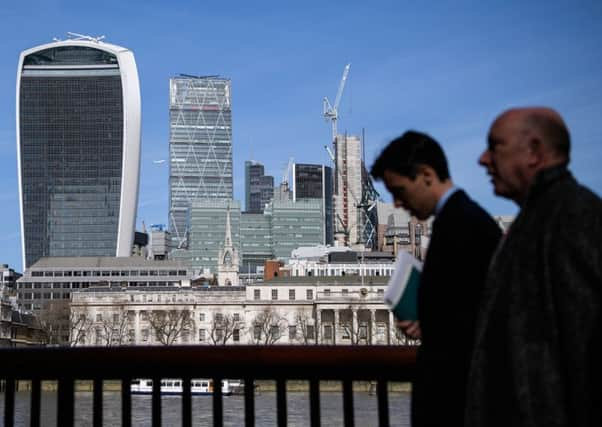Martin Flanagan: UK businesses remain takeover targets
This article contains affiliate links. We may earn a small commission on items purchased through this article, but that does not affect our editorial judgement.


Many thought last summer’s vote for the UK to depart the European Union would destabilise inward investment on these shores. The gloom constituency said foreign companies taking over UK businesses or otherwise investing in plant and people here did so because we were a gateway to 500 million consumers across the Channel. That activity would now dry up.
However, a report out today questions that jaundiced assumption. American and Asian firms will continue to prowl around attractive UK businesses as the combination of the unexpectedly strong domestic economy and the slide in the value of the pound since Brexit provides fertile ground for deals, says the Global M&A Predictor from business advisory major, KPMG.
Advertisement
Hide AdAdvertisement
Hide AdToday’s report says the total market capacity for global mergers and acquisitions (M&A) activity is expected to jump 17 per cent in 2017 as businesses clear the decks for possible acquisitive action by paying down debt and enhancing their credit facilities. The prospect of a spike upwards in domestic deals in the UK has also sharpened, KPMG says, with UK plc’s warchest for acquisitions likely to jump 22 per cent over the coming year.
This is partly due to healthy bottom lines (pre-tax profits) and decent balance sheets that bear no relation either in size or surrounding confidence to the situation for several years after the 2008 financial crash.
Sanjay Thakkar, head of Deal Advisory for KPMG in the UK, said: “Today’s businesses need to transform far more radically and quickly than is possible via organic means. Both CEOs and shareholders know this, which is why M&A remains a vital driver for companies seeking change. The good news is that their capacity to transact is buoyant thanks to healthy balance sheets and swelling cash reserves.
“Couple brimming war chests with low interest rates, a favourable debt market, a relatively benign economic climate and a desire amongst corporates to disrupt, and it’s no coincidence that we have seen a plethora of bids – some successful, some otherwise – hit the headlines since the turn of the year. We foresee this to be just the start, and that 2017 could well end up being a landmark year for dealmaking.”
Of course, sceptics could say part of the current positive cocktail for takeovers and inward investment – UK economic resilience – may not survive tortuous EU exit negotiations to be triggered this month by Theresa May.
Referring to such uncertainty, Bronwen Maddox, the Director of the Institute for Government, the independent charity and advisor on government and Whitehall efficiency, told the annual dinner of British Private Equity and Venture Capital Association earlier this week that the buzz among some civil servants negotiating Brexit is that “five years has become the new two years” – the latter figure being the estimated time to do a deal with the EU.
Advertisement
Hide AdAdvertisement
Hide AdBut, for now, neither panic or reined-in ambition is taking root among would-be acquirors of UK PLC, be it foreigners or indigenous moves. Since the Brexit vote, Japan’s SoftBank has paid £24 billion for British microchip maker, Arm Holdings, while Odeon and UCI Cinemas has been acquired by AMC Entertainment of the United States for £912m.
Meanwhile, Scottish financial services giants Standard Life and Aberdeen Asset Management have just unveiled an £11bn merger. The acquirors’ tails are up. KPMG’s methodology was to measure businesses’ net debt as a proportion of underlying earnings, stripping out the likes of tax, depreciation and amortisation. The rosier picture for 2017 follows “subdued” transactional levels last year, as total global deals fell 17 per cent in the face of tougher regulation and greater geopolitical risks.
However, domestic M&A hit its highest peak since 2008, with 400 successful deals with a combined value of £23.9bn. Andrew Nicholson, head of M&A at KPMG in the UK, believes the attractiveness of UK assets to overseas investors will not diminish in the short term. He said: “International buyers emerged as a real force to be reckoned with towards the end of last year, as overseas trade acquirers – most notably those from the US and Asia – acted opportunistically to take advantage of a weakened sterling. With no sign of a bounce in the pound on the horizon, and the UK economy continuing to confound post-referendum expectations, UK businesses will remain a target for hungry investors.”
However, Nicholson admits that one possible fly in the ointment in this currently deal-rich scenario is “the increasing protectionist rhetoric emanating from certain countries and uncertainty around international trade policy”.
He doesn’t mention wild card president Donald Trump by name, but it remains a shadow.